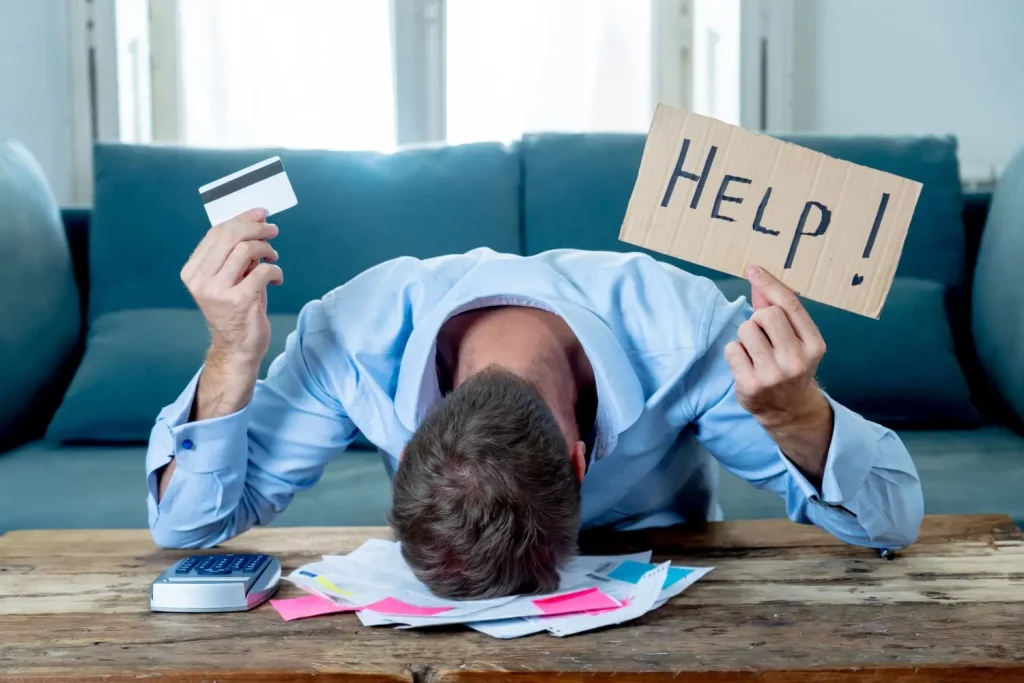If you’re finding your way through debt, you might have come across terms like ‘secured’ and ‘unsecured’ debt. But what does this mean, and what’s the difference between the two?
Both types of debt impact your finances and how you can manage your debt differently. Understanding these differences is a great starting point for getting your finances back on track.
Our team has helped thousands, just like you, deal with their debt in Canada. We’re here to help you find your way back to financial freedom.
In this blog, we’ll break down the key differences between secured loans and unsecured loans, giving you the information you need to make confident decisions about your financial future.
Key Points
- Secured VS Unsecured Debt Video
- What is Secured Debt?
- What Are Some Examples of Secured Loans?
- What Are The Risks of Secured Debt?
- What is Unsecured Debt?
- What Are Some Examples of Unsecured Loans?
- What Are The Risks of Unsecured Loans?
- Is it Better to Get a Secured or Unsecured Loan?
- What Debt Help Options Are Available for Secured and Unsecured Debt?
- Get Professional Debt Help
Secured vs. Unsecured Debt – watch our explanation below:
What is Secured Debt?
Secured debt is a type of debt that is tied to an asset – something you own. This asset, whether it’s your car or house, is put up as collateral. In simple terms, this means that if you fail to pay back your secured debt, your creditor (the person/company you owe money to) has the right to claim your assets as a repayment.
This reduces the risk of your lender losing money, which often means secured loans come with better interest rates.
What Are Some Examples of Secured Loans?
Some common types of secured loans include:
- Mortgages, which are loans taken out to buy a home. If you fail to pay your mortgage, the bank has a claim on your property.
- Auto loans, which are often used to buy a vehicle. Like with mortgages, if you can’t pay back your auto loan, the lender has a right to take your car as payment.
- Home equity loans, which are based on the equity you’ve built in your home (the part of the mortgage you’ve paid off and any other added value). If you don’t pay back the loan, the creditor can take that equity as payment.
What Are The Risks of Secured Debt?
Because secured debt is linked to some of your most valuable possessions, the main risk that comes with it is losing these assets. This risk is a heavy weight to carry on your shoulders and, if repayments aren’t kept up with, can lead to a lot of stress and anxiety.
On the positive side, because secured loans are less risky for lenders, they often come with lower interest rates and more favorable terms. This can make big purchases like homes and vehicles accessible to more people.
If you take out a secured loan, you have to be strict with your repayments, budgeting and long-term financial planning. If you miss your payments, your possessions can be taken as collateral, and your credit score and financial freedom can be negatively affected.
What is Unsecured Debt?
Unlike secured debt, unsecured loans do not need any collateral, meaning your assets have more protection. This type of debt includes loans and lines of credit where the lender’s decision to offer you money is based on your own creditworthiness. Essentially, if you have a good credit score and a strong track record of making repayments on time, you shouldn’t have any trouble taking out an unsecured loan.
However, as no assets are backing up your loan, the lender has more risk of losing their money if you don’t repay them. This means unsecured loans often come with higher interest rates.
What Are Some Examples of Unsecured Loans?
Some common types of unsecured loan debt include:
- Credit cards – these are lines of credit that come with varying interest rates and credit limits
- Personal loans – these loans are given based on your personal credit history
- Medical bills – these are the expenses you have to pay after receiving medical care
What Are The Risks of Unsecured Loans?
While they aren’t tied to your possessions, unsecured loans do come with some risks. The most obvious impact of unsecured debt is on your credit score and financial flexibility.
Having a lot of unsecured debt, especially if it has higher interest rates, can quickly become overwhelming, making it difficult to meet monthly repayments. If this happens, it can have a negative impact on your credit rating, making it harder and more expensive to borrow money in the future.
If you fail to make your repayments, your creditors may also take legal action to recover their money. This can include garnishing your wages or freezing your bank accounts.
Is it Better to Get a Secured or Unsecured Loan?
If you’re considering a loan, choosing between secured and unsecured can feel like a big decision. The answer to “Which one is right?” entirely depends on your personal circumstances. Here’s a quick recap of the things you should think about when deciding:
Secured loans are backed by collateral, like your home or car. They often have lower interest rates and higher borrowing limits because the lender has a safety net. However, there’s a risk: you could lose that collateral if you can’t repay.
Unsecured loans don’t require collateral, making them a less risky choice if repayment becomes tough. But they also usually have higher interest rates and stricter credit requirements, so it’s still really important to make sure you make your repayments on time.
Each type has its merits, and the right choice depends on your financial situation and comfort with risk. Always consider what feels most manageable for you.
What Debt Help Options Are Available for Secured and Unsecured Debt?
If you’re struggling with secured debt, unsecured debt, or a combination of the two, there are a number of debt relief options that could help:
- Consumer Proposals: This option allows you to settle your debt for less than the total amount owed. It applies to both unsecured and secured debts, though terms with secured creditors may vary.
- Bankruptcy: A legal process that provides relief from many types of debt. While it can eliminate most unsecured debts, secured debts are treated differently since the secured creditor has a claim on the collateral.
- Credit Counseling: A service that helps you understand your financial situation and offers guidance on managing unsecured debt.
- Debt Management Plans: These plans consolidate unsecured debts into a single monthly payment with potentially lower interest rates.
- Debt Consolidation: Consolidating multiple debts into one loan can simplify payments and possibly reduce interest rates, particularly for unsecured debt.
Take Back Control Today – Call Our Team
Dealing with debt, whether secured or unsecured, can put a lot of pressure on you. Knowing the difference between these types of debt is a big step in getting it under control. No matter what type of debt you’re facing, there are ways out that can help you get back on track.
Remember – you don’t have to be in this alone. We know it’s tough and can feel overwhelming. Our team of professional Licensed Insolvency Trustees has been there for lots of people in the same boat, helping them find their way out of debt.
So, if you’re feeling stuck and not sure what to do, talk to us. Our team is here to listen, understand, and help you figure out the best way to clear the slate and start fresh. Let’s work together to find the right debt solution for you.











